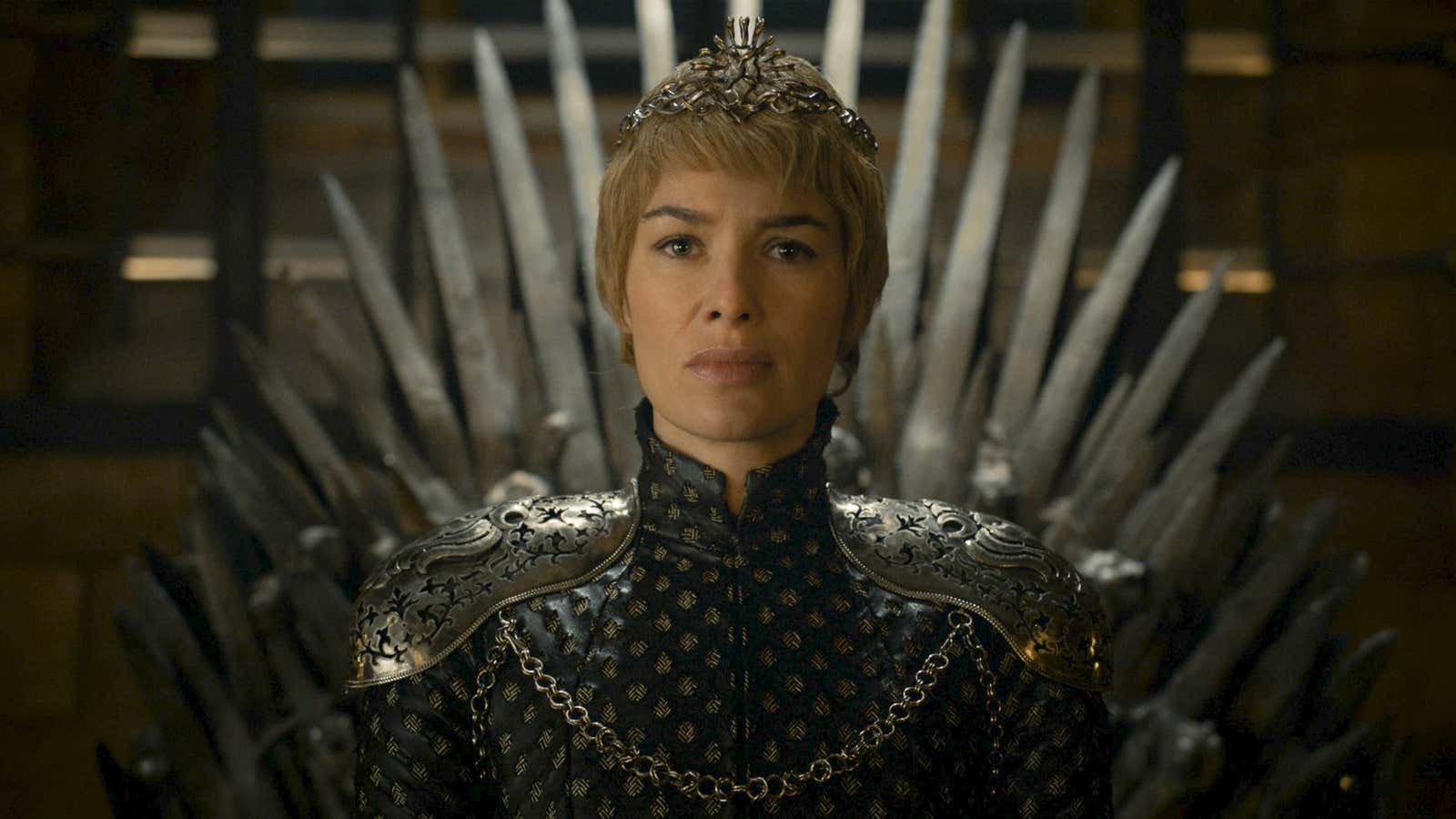The opening sequence of last night’s Game of Thrones season finale was perhaps the best moment in the show’s history, and one of the best on television in the last few years. It was masterful TV-making, from the writing, to the acting, to the music, to the cinematography.
While much of this season’s narrative has meandered in the wake of the show’s plot advancing past the books on which it’s based, last night’s finale, and its opening scenes in particular, demonstrated the limitless potential of storytelling on the small screen.
As great filmmaking often does, it began with the music:
The episode started with a subdued arrangement of piano and cello (and later organ and a hushed choir), a departure from Ramin Djawadi’s normally ornate score. This, though, felt almost like the sounds of a different show—it would have fit in perfectly with the understated music of another HBO show, The Leftovers.
We see citizens file into the Sept of Baelor, awaiting the trials of Loras Tyrell and Cersei Lannister, but Cersei watches the building from a distance, safely in her own chambers. We don’t know it yet, but she has orchestrated the deaths of everyone there, in what, essentially, amounts to an act of terrorism.
For the first several minutes, there’s virtually no dialogue as we see a montage of Cersei, her son Tommen (the king), and the High Sparrow all getting dressed. Two of these characters will not survive the day, while the third will be crowned the new queen.
Then, the trial begins. Loras confesses to the Sparrow for his “crimes.” Meanwhile, two men are lured to the tunnels beneath the city and stabbed, and Cersei’s scheme becomes clear. She intends to destroy the Sept with wildfire, a mythical weapon of war that’s like a fantastical, more destructive version of napalm.
Characters within the Sept begin to realize what’s going on, but it’s too late. The building ignites in a horrible swirl of bright green fire, and Cersei looks on, smirking.
Tommen, whom Cersei did not allow to attend the trial (knowing what was to happen to everyone there), observes the carnage his mother has wrought, and kills himself anyway. The camera lingers on a shot of the charred Sept seen through Tommen’s window as he walks off screen, takes off his crown, walks back into frame and quietly jumps from the tower.
This whole sequence could be its own short film or one-act play. The way that it builds narrative tension and then releases it has drawn comparisons to the master of suspense himself, Alfred Hitchcock.
If last week’s epic battle was “cinematic” in its scale and grandiosity, last night’s finale was cinematic in a different way—imaginative and skillfully choreographed. Game of Thrones has killed countless characters before, but not since the death of Ned Stark in the show’s first season have character deaths been part of such a stunning piece of storytelling.
And it wasn’t the only great moment from the episode. One in particular featured an expert application of dramatic irony: the men of the North pledging fealty to their king, Jon Snow, whom they believe is the bastard son of Ned Stark—just as the audience learns Jon is in fact not Ned’s son at all, but rather, his nephew, and actually has Targaryen blood.
The episode even found a way to insert the much-maligned “Sand Snakes” back into the story (video) in a way that didn’t make everyone hate them. In an episode filled with great moments, that may have been its most clever.
Game of Thrones needed this episode. This has been arguably the most divisive season of the show so far, with some fans and critics bemoaning how the story has seemed to tread water, while others conversely celebrating how it’s now free to move beyond the restraints of George R.R. Martin’s book series.
Even if this season has been unusually stagnant, the finale was anything but—it was the culmination of several years worth of storytelling, and it set up the show’s final act. It proved Game of Thrones is, as advertised, true prestige TV, and not just middlebrow schlock.
Winter, finally, is here.




